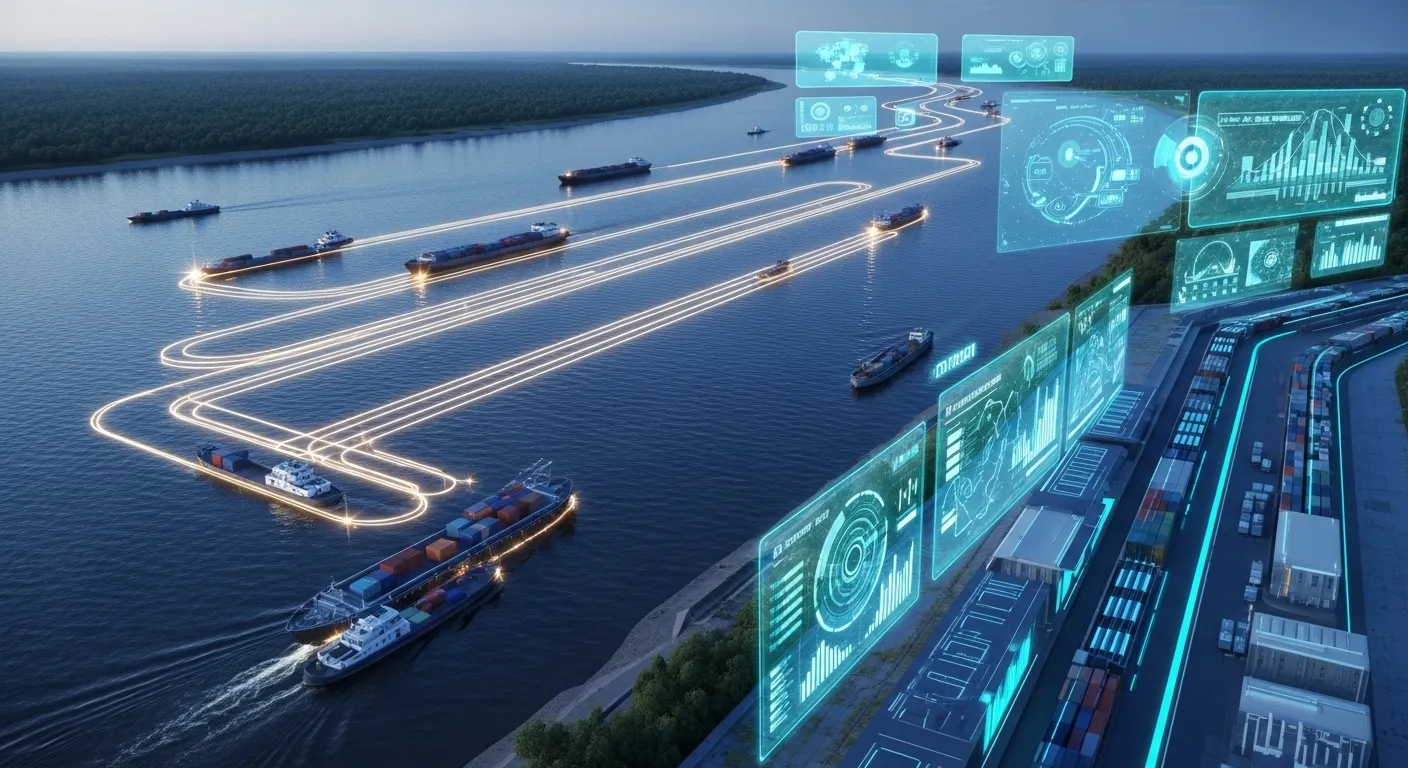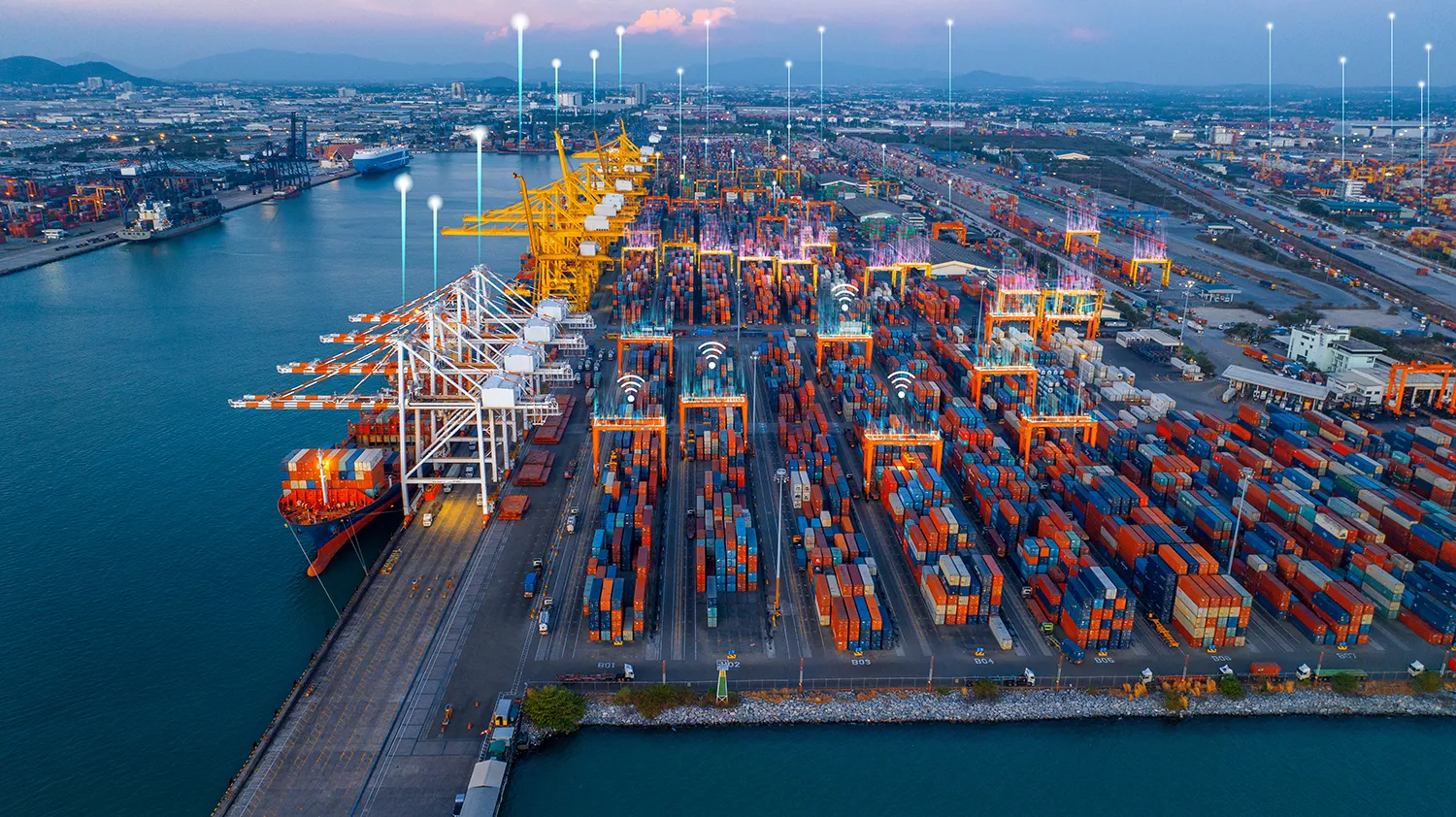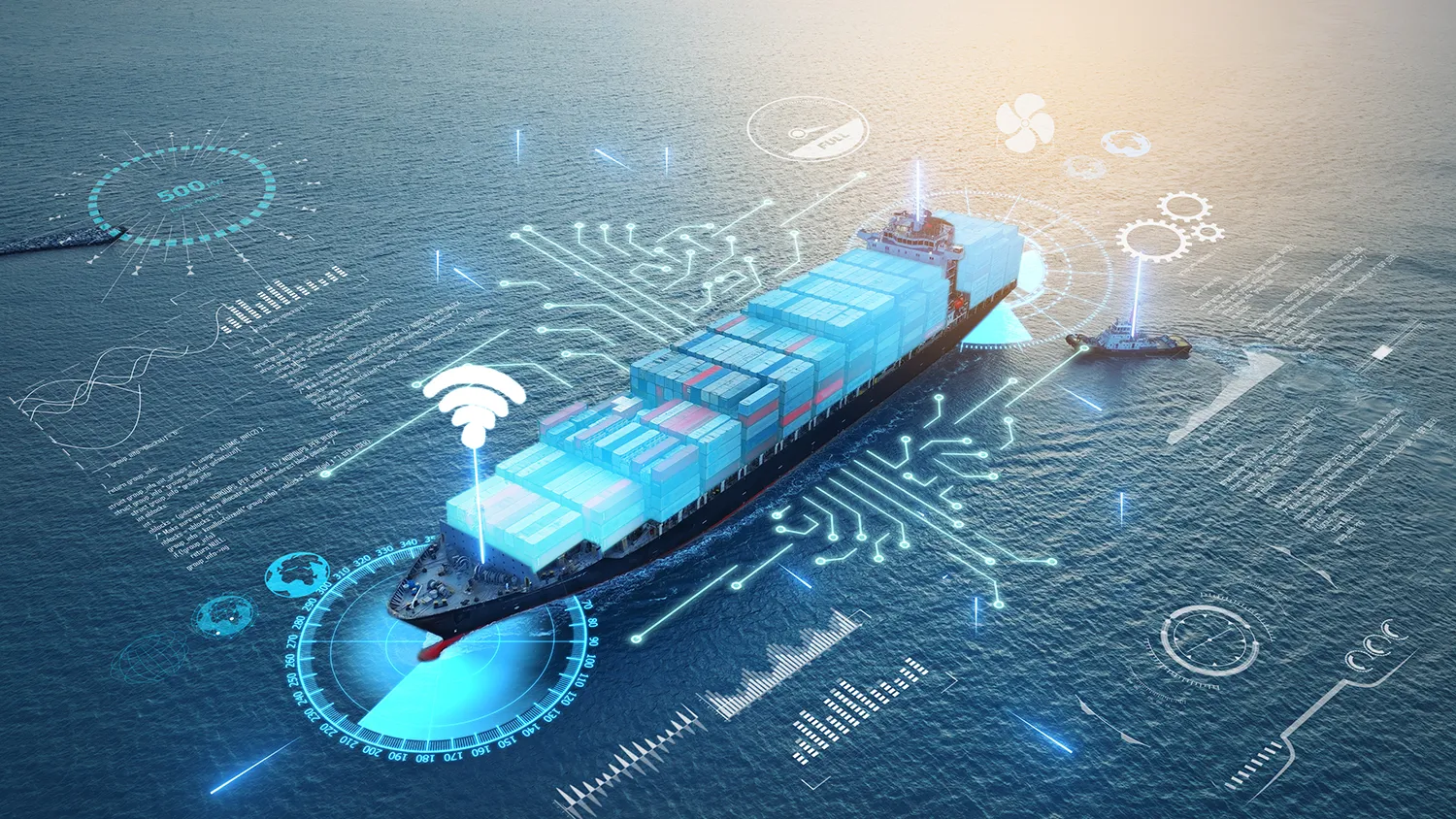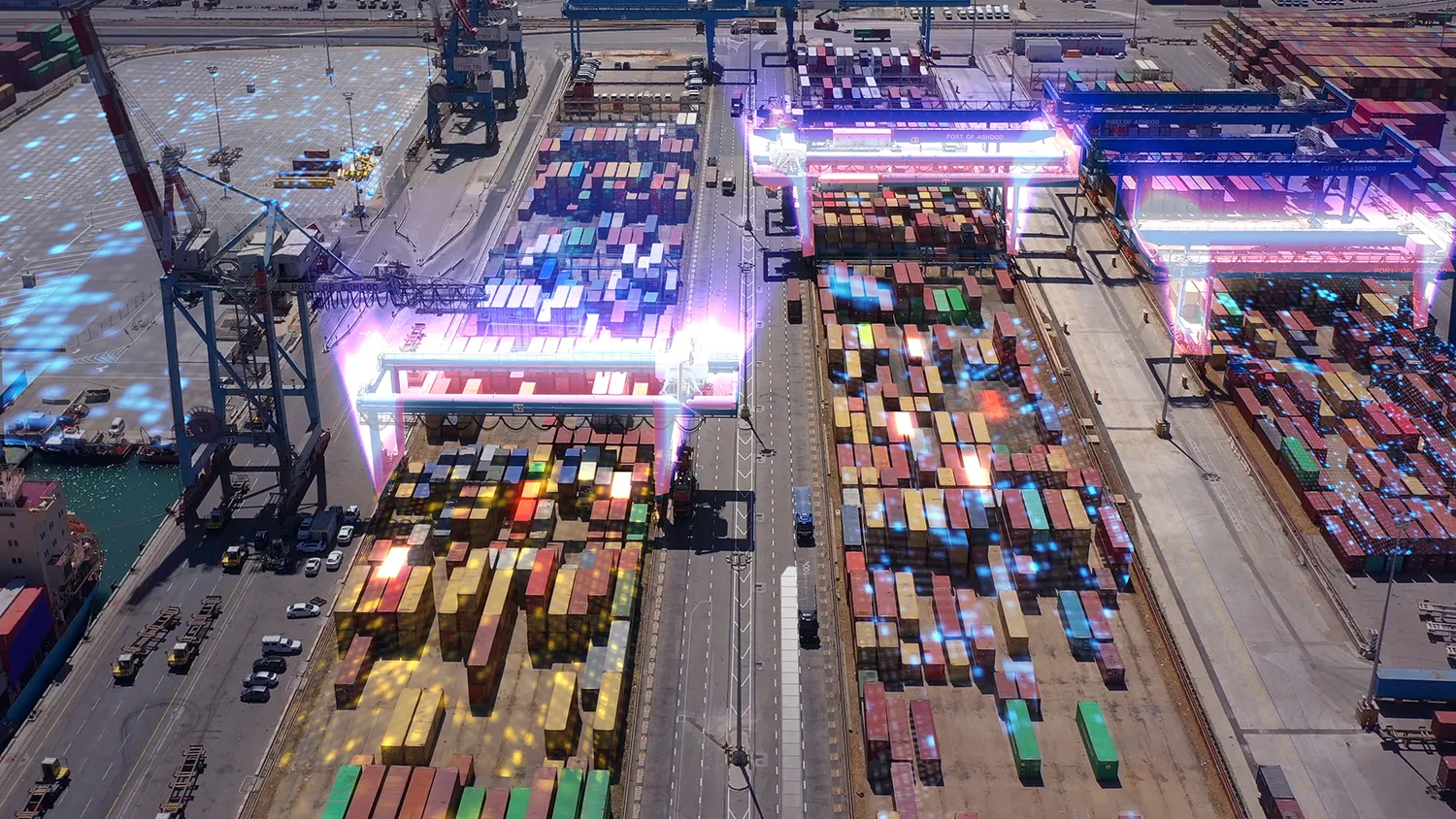Russia’s River Logistics Undergoes AI-Driven Transformation

Russia’s Federal Agency for Maritime and River Transport and the state enterprise Rechvodput have unveiled a national-level platform called Digital River, aiming to unify the country’s entire inland waterway system into a single digital ecosystem.
Unified Digital Infrastructure for Inland Waterways
The Digital River platform is designed to integrate more than 100,000 kilometers of navigable rivers and over 100 ports across Russia. It will act as a central hub for interaction with seaports and major international transport corridors, including the North-South route and the Trans-Arctic passage.
The system architecture includes a registry of port and berth infrastructure, a freight contract marketplace, digital documentation tools, and AI-powered modules to analyze port congestion and optimize routing. A unified payment and tariff system is also part of the plan.

One of the key innovations is the seamless integration of government and private-sector cargo tracking systems — from agricultural logistics and Russian Railways to customs services — creating an uninterrupted data exchange environment for all logistics participants.
Context for Digitalization in Water Transport
Russia has steadily implemented digital technologies in its water logistics sector over the past five years. In 2022, the RailDATA platform was launched to integrate rail freight with customs, accelerating transit operations. That same year, the Ministry of Transport initiated the OSO Platform to digitize road freight logistics, with features such as freight marketplaces.
In parallel, international systems have evolved. China began piloting its national port registry platform in 2023, incorporating predictive analytics tools. The European Union launched the Blue Economy Tracker in 2022 to unify sea and river ports.
Russia's domestic efforts gained momentum in 2024, including the digitalization of river locks and vessel monitoring systems. Major terminals in the Caspian Basin adopted ERP solutions, and the Volga-Balt Administration replaced paper logs with the Ship Electronic Logbook system.

Export Potential and Scaling Strategy
If fully realized, Digital River could become a benchmark model for countries with complex inland logistics — from Scandinavia to Asia and the Middle East. Russian technology is already gaining international traction: the Leonardo booking platform operates in Armenia, Kyrgyzstan, Belarus, and was adopted in 2024 by Venezuela’s largest airline.
Domestically, the system is expected to drive the development of multimodal logistics based on river ports. Rosmorrechflot has signed agreements with 11 regional governments to build logistics hubs in regions such as Amur, Moscow, Irkutsk, Omsk, Nizhny Novgorod, Rostov, Saratov, Sakha, Tatarstan, Perm Krai, and Khabarovsk Krai.

Roadmap and Implementation Timeline
Over the next two years, pilot projects will test core platform functions along critical transport corridors, focusing on interfaces for integration with Russian Railways, customs authorities, and the agricultural sector.
Between 2027 and 2028, the system will expand with full AI functionality and a developed digital ecosystem, including active freight marketplaces and predictive analytics tools.
Starting in 2029, Russia plans to offer Digital River as a global logistics solution, adapted to international standards. The platform is expected to mirror global waterway management systems while aligning with domestic regulatory and technological frameworks.










































